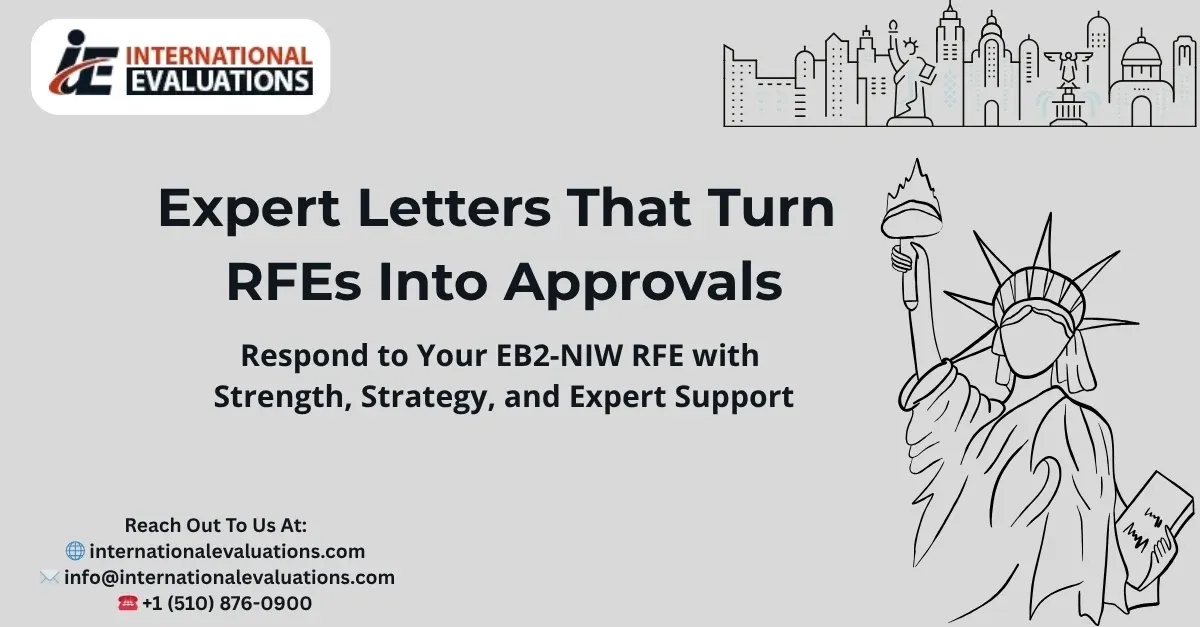Introduction
In a progressively globalized world, the demand for experts who can navigate international borders has actually never been higher. As companies expand their operations throughout continents, understanding the subtleties of work experience assessment becomes important for both companies and workers. This post delves deep into the complexities of work experience evaluation, clarifying its importance in global movement, the procedures involved, and https://griffinonqj064.tearosediner.net/leveraging-work-experience-for-academic-advancement-through-evaluation how it intersects with academic credential assessment and other crucial factors.
Understanding the Nuances of Work Experience Evaluation for Global Mobility
When we discuss work experience evaluation, we're essentially talking about a structured technique to assess an individual's expert background, abilities, and competencies in a worldwide context. This evaluation is important for numerous stakeholders consisting of companies seeking to employ worldwide talent, individuals seeking employment abroad, and universities using programs to boost employability.
Work experience examinations help bridge the gap between diverse worldwide work requirements. They make sure that pertinent experiences are acknowledged and valued appropriately. This process frequently includes a professional viewpoint letter which offers an in-depth analysis of a prospect's credentials relative to industry standards.
The Significance of Work Experience Assessment in Global Mobility
Navigating International Standards
With various nations having actually varied criteria for examining expert experience, comprehending these inconsistencies ends up being important. An efficient work experience evaluation allows companies to align prospects' backgrounds with regional expectations.
Enhancing Employability
For job applicants going for chances abroad, providing an accurate depiction of their work history can considerably enhance their employability. Evaluations conducted by reputable global credential evaluation services use potential employers a clear image of what prospects give the table.
Key Components of Work Experience Evaluation
1. Document Verification
Document verification is essential in developing the authenticity of a prospect's work experience. Each document needs to be inspected thoroughly to avoid fraud or misrepresentation.
2. Skill Assessment
A thorough ability evaluation examines the competencies acquired during previous employment. This might include technical abilities along with soft skills like interaction or leadership abilities.
3. Professional Viewpoint Letter
An expert opinion letter plays a pivotal role in verifying work experiences. It functions as a reliable recommendation from acknowledged experts within particular markets or sectors.
Types of Credential Evaluations Related to Work Experience
1. Academic Credential Evaluation
This process assesses educational qualifications obtained from organizations outside the nation where one seeks employment or further education. Comprehending how academic qualifications associate with work experiences is vital as some roles require particular educational backgrounds.
2. Course-by-Course Credential Evaluation
For applicants who wish to demonstrate their academic standing together with useful experiences, course-by-course evaluations offer detailed breakdowns naturally taken, grades got, and equivalencies developed in relation to local education systems.

3. Business Strategy Evaluation
While mostly pertinent for entrepreneurs, business plan examinations can link with work experience assessments when individuals look for funding or collaborations based on their previous roles and achievements within particular industries.
The Process of Carrying out a Work Experience Evaluation
Conducting an extensive examination includes a number of actions:
- Collecting required files such as letters from previous employers, pay stubs, or job descriptions. Engaging with worldwide credential examination services that concentrate on examining foreign work experiences. Compiling findings into thorough reports that overview validated abilities and experiences clearly.
Challenges in Work Experience Evaluation
Despite its importance, there are difficulties associated with examining work experience globally:
- Variability in job titles and responsibilities throughout various cultures can complicate comparisons. Inconsistencies in documents practices might cause problems in confirming claims made by candidates.
Best Practices for Reliable Work Experience Evaluation
To make sure precision and fairness in assessments:
Establish clear standards regarding what makes up legitimate work experience. Engage certified evaluators who understand both regional and worldwide market demands. Utilize technology-driven options for effective data collection and analysis.Future Patterns in Work Experience Evaluations
As globalization continues to develop:
- We anticipate increased usage of artificial intelligence tools to streamline evaluations. More emphasis will likely be put on soft skills and versatility together with conventional hard abilities due to altering labor force dynamics.
FAQs
Q1: What is a professional opinion letter?
An expert viewpoint letter is a file provided by industry professionals that verifies an individual's qualifications or experiences according to industry standards.
Q2: How does academic credential assessment impact work experience?
Academic credential evaluations help contextualize instructional credentials against regional expectations, improving understanding during work experience assessments.
Q3: Why do I need a course-by-course credential evaluation?
A course-by-course credential assessment offers comprehensive insights into your academic history, demonstrating how your education complements your expert experiences.
Q4: Can my previous task title affect my work experience evaluation?
Yes! Task titles differ extensively throughout areas; therefore it's vital that evaluators consider responsibilities instead of titles alone when assessing qualifications.
Q5: What types of files are required for work experience evaluations?
Generally needed documents include letters from past companies detailing your role/responsibilities, pay stubs showing period at each position, and any associated certifications made throughout employment.
Q6: How long does a common work experience evaluation take?
The duration can differ widely based on complexity however typically ranges from several weeks as much as three months depending on documentation availability and verification needs.
Conclusion
Understanding the subtleties of work experience evaluation is necessary for navigating today's global workforce landscape efficiently. By appreciating the intricacies included-- ranging from documentation verification through expert viewpoint letters-- it ends up being clear that this process is not merely bureaucratic however deeply integral to guaranteeing that talent is recognized precisely throughout borders.
As companies increasingly worth diverse viewpoints brought by international skill swimming pools, those involved-- be it task hunters or companies-- must remain informed about finest practices surrounding these assessments while also adapting as patterns progress within this dynamic field.
By harnessing trusted resources such as academic credential evaluations and engaging with reputable worldwide credential examination services, people can enhance their profiles substantially while organizations can make educated hiring decisions aligned with their strategic objectives-- ultimately fostering development within our interconnected world economy.